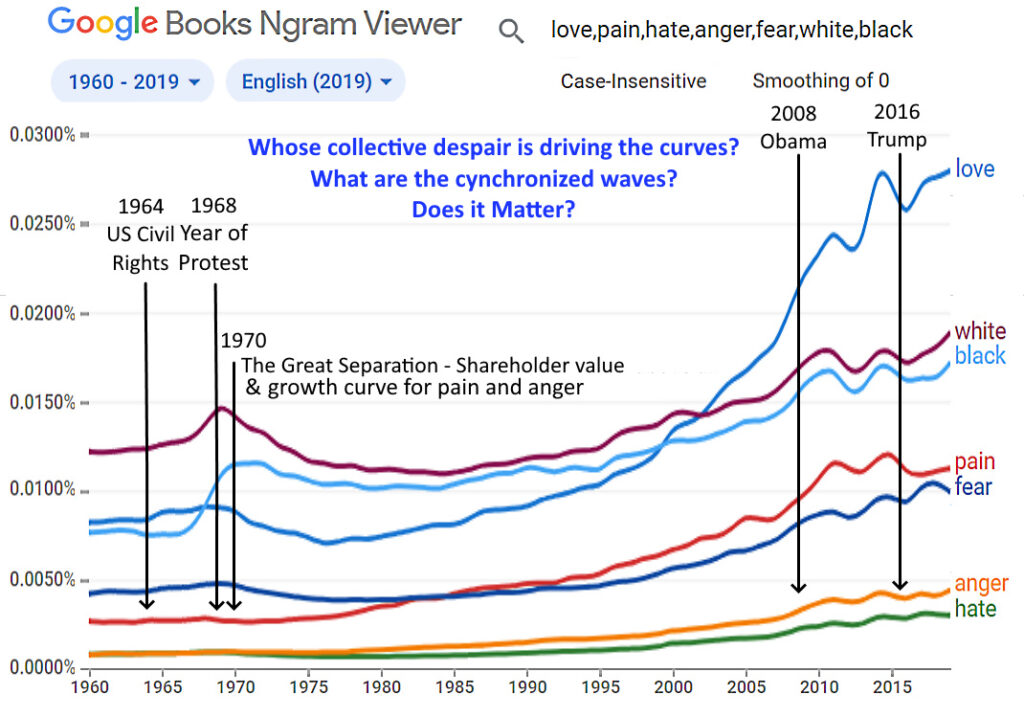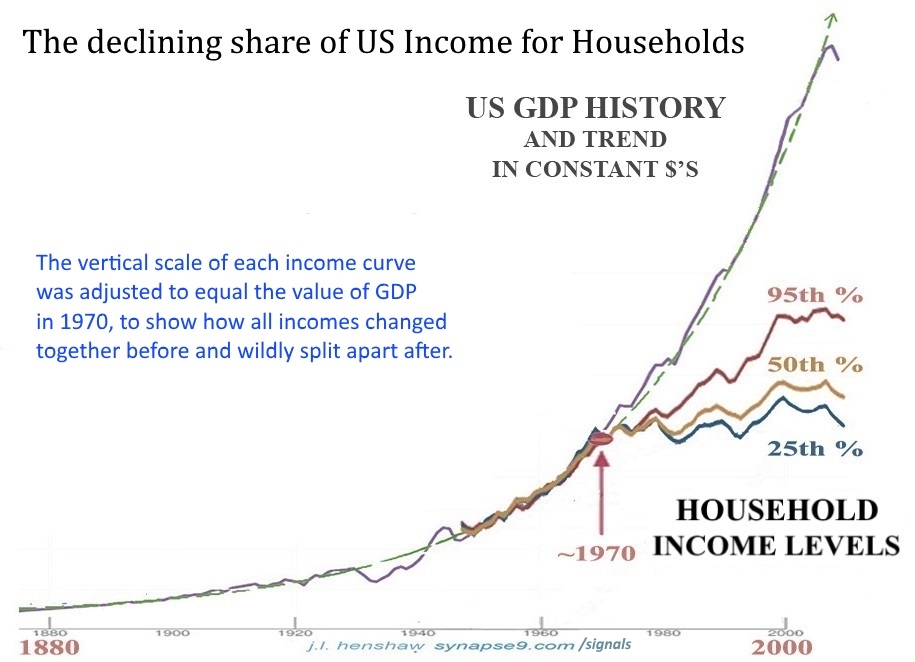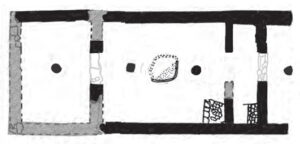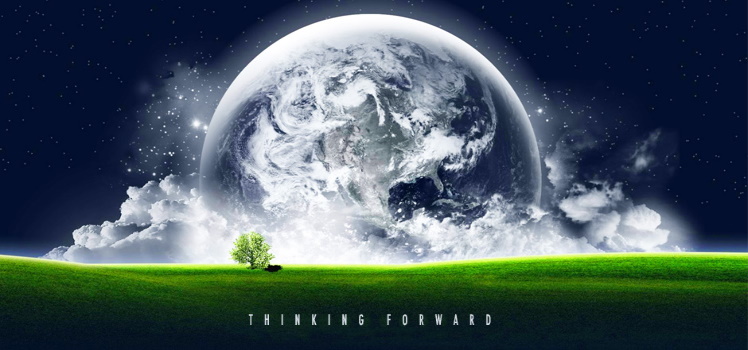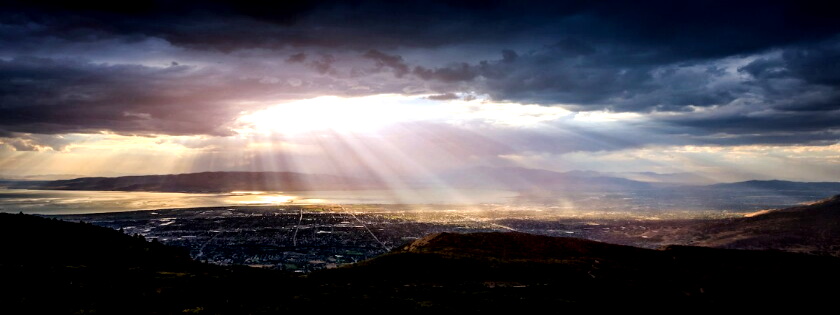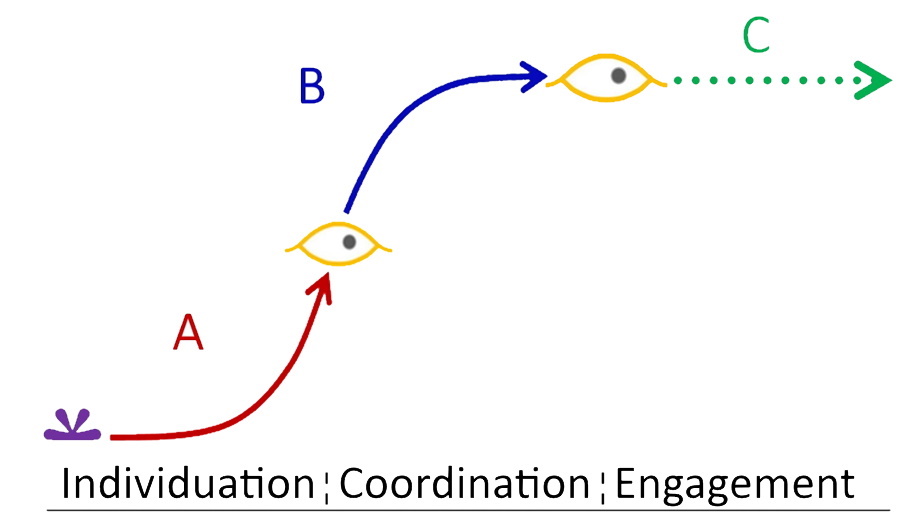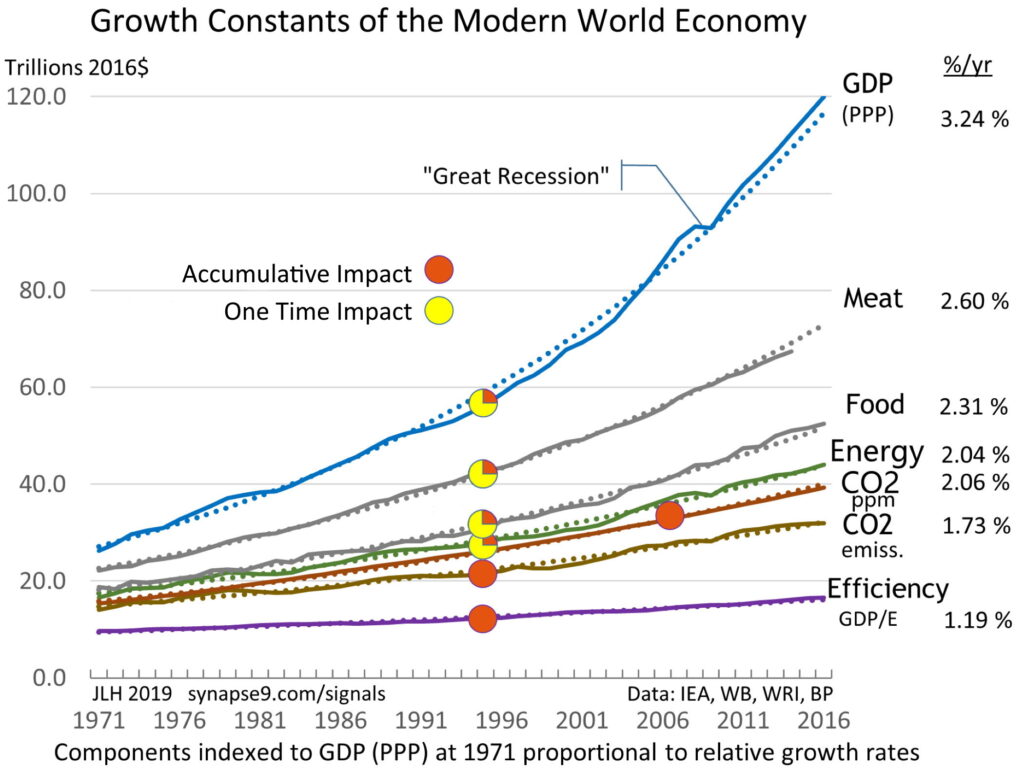ALERT – ambitious regeneration … faces rapid global decline!
Lauren,
I’ve been active in the movements for decades but have been unsuccessful in pointing out how we should address the symptoms AND the causes of rapid global sustainability decline.
That has not been happening at all, though. While trying to heal the world, the UN, environmentalists, and all the other regenerative movements have done nothing about what is causing the rapid acceleration of damage. Hidden in very plain sight it’s the regular financial doubling of the economy and its side effects for maximum profit.
However important the symptoms are, we have also been displaying about as much blindness to the real cause as the people actively managing or doing it. That is, the well-educated professionals with homes and families whose rules for profit tell them to extract multiplying wealth from the earth, blind to the costs! That’s the real cause in a nutshell.
I write lots of short pieces on it. The main possible saving grace is that the people managing the planet’s destruction are mostly well-educated, successful professionals with lives and families as threatened by global environmental collapse as anyone’s. That they are blind to how they are causing the threats to themselves is the weak point in the system.
It happens by their following the old rule for profit, to use profits to invest in multiplying profits, thus endlessly multiplying the economy’s power over nature. They don’t see it because “the rules do not connect with their contexts.” The people are then only guided by their social relations, which are mostly very positive due to all the profits, unaware of the existential threat!
The real key is for the movements to expand our caring to include those causing the harm but don’t see it, rather than despising them, as Marx and so many others have, assuming they saw what they’re doing. Their blindness is systemic and, largely, NOT THEIR FAULT.
The solution is for our care for them to let us serve their interest in caring for their homes and families at risk. That MIGHT trigger a realization that they need to fund all our cares for the future rather than deny our care and fund its ever-faster destruction. We’d be in good company then, as ALL natural and human systems that survive their growth exit growth that way, by shifting from extraction to care.
I wish I could attend some of tomorrow’s key Pollination & Ecocivilization meetings (ref below). I’m generally available to talk or consult. Would you pass the word that I’d love to help writers to write up some of this? I’m a scientist who writes and needs to connect with writers who do some science.
Here are links that go in-depth, from a humanistic natural systems view, Three talks with links in the prefaces.
– Language as a knowledge tree for systems *in context* (last week)
– How Natural Growth Makes New Lives – Opportunistic Paths to Smooth Sailing (2022)
– The Surprising Design & Steering of Whole Systems (2021),
All the very best,
Jessie
Jessie Henshaw – HDS natural systems design science ¸¸¸¸.•´ ¯ `•.¸¸¸¸
~~~~~~~~~~~~~~~~~~~~~~~~~~~~~~~~~~~~~~~~~~~~~~~~~~~~~
Research Journal — Reading Nature’s Signals — Publication
Regeneration Pollination will be hosting its regular session (on our regular zoom link) this Friday in parallel with the Ecocivilisation 24-hr Connectathon that starts on Sept 22nd at 14:00 UTC. In addition, Regeneration Pollination will be hosting a 1 hr session pre-event (9/22 @ 13:00 UTC) and post-event (9/22 @ 14:00 UTC), which will be on the zoom link used for the Connectathon. Register for the Connectathon here and join us for the pre-and post-event session here: https://us02web.zoom.us/j/8206


